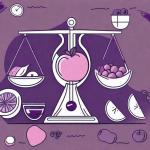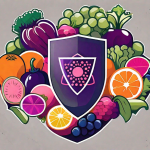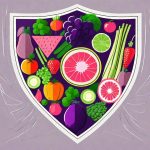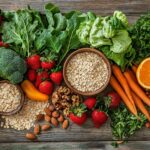Excessive sugar intake is linked not just to weight gain and diabetes, but also to an increased risk of cancer. This article explores the scientific connection between sugar consumption and cancer, revealing how cancer cells thrive on glucose. It highlights the role of inflammation and insulin resistance, both consequences of high sugar diets, in promoting cancer growth. To combat this, the piece offers practical advice on reducing sugar intake, such as swapping sugary drinks for water and opting for whole fruits over juices. It also stresses the importance of a holistic dietary approach, incorporating cancer-fighting foods and maintaining a healthy lifestyle. By making informed dietary choices and cutting down on hidden sugars found in everyday foods, individuals can significantly lower their cancer risk. Embrace a healthier, sugar-conscious lifestyle to protect your well-being and reduce the likelihood of developing cancer.
It’s no secret that excessive sugar consumption can harm our health. From weight gain to diabetes, the negative effects of sugar are well-documented. But did you know that reducing your sugar intake can also lower your risk of developing cancer? Multiple scientific studies have linked sugar consumption to the development and progression of cancer cells in the body. In this article, we will explore the sugar-cancer connection, identify hidden sugars in everyday foods, provide tips on how to cut down on sugar, and discuss holistic dietary changes for cancer prevention.
The Sugar-Cancer Connection: Understanding the Link
Understanding the link between sugar and cancer starts with realizing how our bodies metabolize glucose, the simplest form of sugar. Cancer cells thrive on glucose, using it as their primary source of energy to grow and spread. By reducing our sugar intake, we can starve cancer cells and impede their growth.
But what exactly happens when we consume sugar? When we eat foods that contain sugar, such as candy, soda, or pastries, our bodies break down the carbohydrates into glucose. This glucose is then absorbed into the bloodstream, where it can be used as fuel by our cells. However, when there is an excess of glucose in the body, it can lead to a variety of health issues, including an increased risk of cancer.
Furthermore, excessive sugar consumption can lead to inflammation and insulin resistance, both of which are associated with an increased risk of developing cancer. Inflammation creates an environment in the body that fosters tumor growth, while insulin resistance causes higher insulin levels, which can fuel the growth of cancer cells.
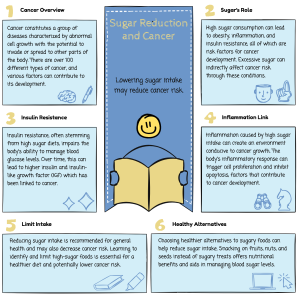
Let’s delve deeper into the role of inflammation in cancer development. When our bodies detect an injury or infection, they initiate an inflammatory response to help heal the affected area. This response involves the release of various chemicals and immune cells that work together to eliminate the threat. However, chronic inflammation, which can be caused by factors such as a high-sugar diet, can lead to long-term damage to our cells and tissues. This damage can create an environment that is conducive to the growth and spread of cancer cells.
Insulin resistance, on the other hand, occurs when our cells become less responsive to the effects of insulin, a hormone that helps regulate blood sugar levels. When insulin resistance develops, the body produces more insulin to compensate. Elevated insulin levels can promote the growth of cancer cells, as insulin acts as a growth factor. Additionally, insulin resistance is often accompanied by high levels of insulin-like growth factor 1 (IGF-1), another hormone that can stimulate the growth of cancer cells.
It’s important to note that while reducing sugar intake can be beneficial in reducing the risk of cancer, it is not a guaranteed preventive measure. Cancer is a complex disease with various contributing factors, and a balanced and healthy lifestyle is crucial for overall well-being. However, by understanding the link between sugar and cancer, we can make informed choices about our diet and reduce our risk of developing this devastating disease.
Rethinking Consumption: Identifying Hidden Sugars in Everyday Foods
While it’s easy to spot obvious sources of sugar like sodas and candies, hidden sugars can lurk in unsuspecting foods. Manufacturers often add sugar to processed foods to enhance taste and shelf life, making it imperative to read nutrition labels carefully.
Some common culprits of hidden sugars include flavored yogurt, condiments like ketchup and barbecue sauce, and even seemingly healthy snacks like granola bars. Learning to identify these hidden sugars is essential to making informed choices about our diet and reducing our cancer risk.
Flavored yogurt, a popular choice for many as a healthy breakfast or snack option, can contain surprising amounts of added sugars. While the fruit flavors may seem natural, they are often achieved through the addition of sugar or high-fructose corn syrup. By opting for plain yogurt and adding fresh fruits or a drizzle of honey, you can control the amount of sugar you consume.
Condiments like ketchup and barbecue sauce, commonly used to enhance the flavor of various dishes, can also be sneaky sources of hidden sugars. These sauces often contain high amounts of sugar to balance out the acidity and add a touch of sweetness. Reading the ingredient list and opting for low-sugar or sugar-free alternatives can help you reduce your overall sugar intake.
Seemingly healthy snacks like granola bars can be deceiving when it comes to hidden sugars. While they may appear to be a nutritious choice, many granola bars are loaded with added sugars to enhance taste and texture. Reading the nutrition label and choosing bars with lower sugar content or making your own at home using natural sweeteners can be a healthier alternative.
Understanding the impact of hidden sugars on our health is crucial, especially when it comes to reducing the risk of cancer. Excessive sugar consumption has been linked to obesity, diabetes, and certain types of cancer. By being aware of hidden sugars in everyday foods and focusing on healthier diets, we can make more informed choices and take control of our health.
How to Cut Down on Sugar to Lower Your Cancer Risk
Reducing your sugar intake may seem daunting, but with a few simple changes, it is entirely achievable. Here are some tips to help you get started:
- Swap sugary drinks for water, herbal tea, or unsweetened alternatives.
- Choose whole fruit instead of processed fruit juices, which often contain added sugars.
- Opt for healthier snacks, such as nuts or fresh vegetables, over sugary treats.
- Cook meals at home using fresh ingredients, allowing you to control the amount of sugar in your dishes.
- Be mindful of portion sizes, as even natural sugars can add up when consumed excessively.
By implementing these simple changes into your lifestyle, you can significantly reduce your sugar intake and lower your risk of developing cancer.
Beyond Sugar Reduction: Holistic Dietary Changes for Cancer Prevention
While cutting down on sugar is an important step towards reducing cancer risk, taking a holistic approach to your diet is equally crucial. A diet rich in fruits, vegetables, whole grains, and lean proteins provides the body with essential nutrients and antioxidants, strengthening the immune system and promoting overall health.
Incorporating cancer-fighting foods like cruciferous vegetables (broccoli, cauliflower, and kale), berries, green tea, and turmeric can provide added protection against cancer. Additionally, maintaining a healthy weight, exercising regularly, and managing stress levels are all vital in reducing cancer risk.
Remember, every small change you make builds a healthier future. By cutting down on sugar and embracing a holistic approach to nutrition, you can take control of your health and reduce the risk of cancer. Start today, and make a positive impact on your well-being.
In conclusion, reducing sugar consumption can have a profound impact on lowering your risk of developing cancer. Understanding the scientific link between sugar and cancer is the first step towards making informed choices about your diet. By identifying hidden sugars in everyday foods, cutting down on sugar, and adopting a holistic approach to nutrition, you can take control of your health and protect yourself against cancer. Start making small changes today, and embrace a healthier, sugar-reduced lifestyle for a brighter future.


